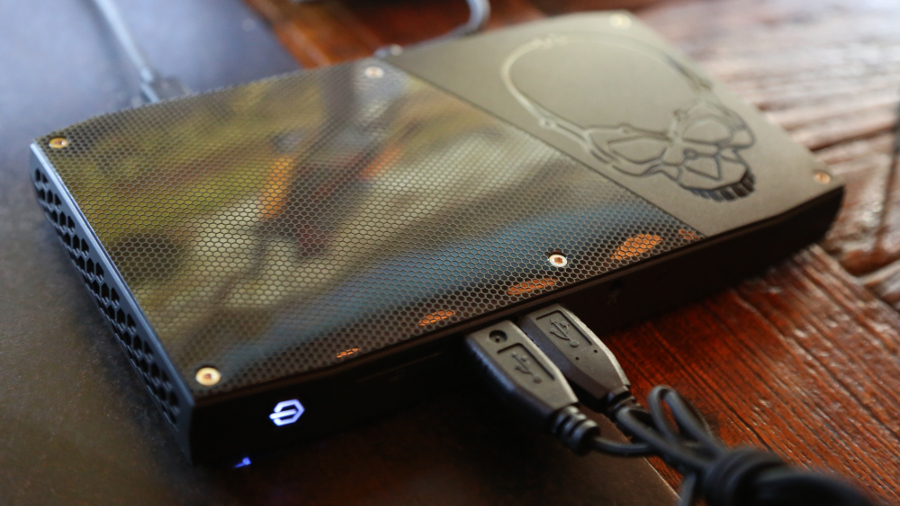Intel's Skull Canyon NUC packs pixel-shifting power into a tiny case
Also boasts Thunderbolt 3 for external GPU support

If you want a mini-PC, then obviously you have to make sacrifices in terms of power to get that compact form factor. But those sacrifices are gradually becoming less painful to bear, and Intel has taken another major step in this respect with its latest NUC.
The new 'Skull Canyon' NUC is admittedly bigger in stature than previous offerings from Intel, but you're effectively getting a low-end gaming PC crammed into the 8.5 x 4.6 x 0.9-inch enclosure.
The engine is a Core i7-6770HQ processor running at 2.6GHz (featuring Turbo to 3.5 GHz) with Iris Pro 580 graphics, and there's room for up to 32GB of RAM, along with two M.2 slots so you can fit a pair of SSDs inside, no less.
Connectivity is impressive too, and you get four USB 3.0 ports, along with a Thunderbolt 3 port, full-size HDMI 2.0 and a mini DisplayPort 1.2. There's also an SD card slot and an Ethernet port, plus on the wireless front the NUC offers 802.11ac Wi-Fi along with Bluetooth 4.2.
There's also a rather nifty looking skull logo on the outer casing – and a plain black lid with no logo that you can replace it with if you think the skull is naff rather than nifty.
Razer edge
One interesting thing to note is that because this machine has Thunderbolt 3 on board, it's possible to hook up an external graphics enclosure like the Razer Core and further boost this NUC's gaming chops.
Mind you, that would be an expensive proposition given that this Skull Canyon mini-PC isn't cheap to begin with. Shipping is set to kick-off next month and the suggested retail price for the NUC6i7KYK kit is $650 (around £450, or AU$850).
Get the best Black Friday deals direct to your inbox, plus news, reviews, and more.
Sign up to be the first to know about unmissable Black Friday deals on top tech, plus get all your favorite TechRadar content.
Intel states that a typical build with 16GB of RAM and a 256GB SSD with Windows 10 will run to around $999 (around £690, or AU$1,300).
That price will likely put a lot of folks off given the sort of desktop gaming PC you can get for this money, but you're obviously going to pay a premium for a small machine with a considerable amount of relative power.
In a way, it's not about the actual NUC itself, but the direction these compact computers are heading in. Hopefully it won't be too long before we see mini-PCs with some true power start to hit more tempting price levels.
- Also check out: Build your first gaming PC: 5 tips from a first-time builder
Darren is a freelancer writing news and features for TechRadar (and occasionally T3) across a broad range of computing topics including CPUs, GPUs, various other hardware, VPNs, antivirus and more. He has written about tech for the best part of three decades, and writes books in his spare time (his debut novel - 'I Know What You Did Last Supper' - was published by Hachette UK in 2013).
Most Popular


